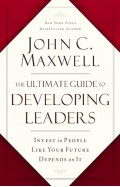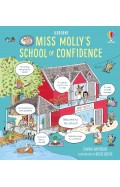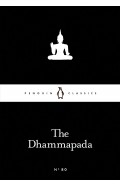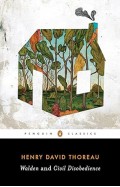- Home
- Categories
- Non Fiction
- Art. Design and Architecture
- Architecture
- The Letters of Vincent Van Gogh
The Letters of Vincent Van Gogh
By: Vincent Van Gogh
-
Rs 2,965.50
- Rs 3,295.00
- 10%
You save Rs 329.50.
Due to constant currency fluctuation, prices are subject to change with or without notice.
A new selection of post-impressionist painter Vincent Van Gough's letters, The Letters of Vincent van Gogh put a human face on one of the most haunting figures in modern Western culture. In this Penguin Classics edition, the letters are selected and edited by Ronald de Leeuw, and translated by Arnold Pomerans in Penguin Classics.
Few artists' letters are as self-revelatory as Vincent van Gogh's, and this selection, spanning his artistic career, sheds light on every facet of the life and work of this complex and tortured man. Engaging candidly and movingly with his religious struggles, his ill-fated search for love, his attacks of mental illness and his relation with his brother Theo, the letters contradict the popular myth of van Gogh as an anti-social madman and a martyr to art, showing instead a man of great emotional and spiritual depths. Above all, they stand as an intense personal narrative of artistic development and a unique account of the process of creation.
The letters are linked by explanatory biographical passages, revealing van Gogh's inner journey as well as the outer facts of his life. This edition also includes the drawings that originally illustrated the letters.
Vincent Willem van Gogh (1853-1890) was born in Holland. In 1885 he painted his first masterpiece, The Potato Eaters, a haunting scene of domestic poverty. A year later he began studying in Paris, where he met Gauguin, Toulouse-Lautrec and Seurat, who became very important influences on his work. In 1888 he left Paris for the Provencal landscape at Arles, the subject of many of his best works, including Sunflowers.
If you enjoyed The Letters of Vincent van Gogh, you might also like 100 Artists Manifestos, available in Penguin Modern Classics.
'If there was ever any doubt that Van Gogh's letters belong beside those great classics of artistic self-revelation, Cellini's autobiography and Delacroix's journal, this excellent new edition dispels it'
The Times
A new selection of post-impressionist painter Vincent Van Gough's letters, The Letters of Vincent van Gogh put a human face on one of the most haunting figures in modern Western culture. In this Penguin Classics edition, the letters are selected and edited by Ronald de Leeuw, and translated by Arnold Pomerans in Penguin Classics.
Few artists' letters are as self-revelatory as Vincent van Gogh's, and this selection, spanning his artistic career, sheds light on every facet of the life and work of this complex and tortured man. Engaging candidly and movingly with his religious struggles, his ill-fated search for love, his attacks of mental illness and his relation with his brother Theo, the letters contradict the popular myth of van Gogh as an anti-social madman and a martyr to art, showing instead a man of great emotional and spiritual depths. Above all, they stand as an intense personal narrative of artistic development and a unique account of the process of creation.
The letters are linked by explanatory biographical passages, revealing van Gogh's inner journey as well as the outer facts of his life. This edition also includes the drawings that originally illustrated the letters.
Vincent Willem van Gogh (1853-1890) was born in Holland. In 1885 he painted his first masterpiece, The Potato Eaters, a haunting scene of domestic poverty. A year later he began studying in Paris, where he met Gauguin, Toulouse-Lautrec and Seurat, who became very important influences on his work. In 1888 he left Paris for the Provencal landscape at Arles, the subject of many of his best works, including Sunflowers.
If you enjoyed The Letters of Vincent van Gogh, you might also like 100 Artists Manifestos, available in Penguin Modern Classics.
'If there was ever any doubt that Van Gogh's letters belong beside those great classics of artistic self-revelation, Cellini's autobiography and Delacroix's journal, this excellent new edition dispels it'
The Times
Zubin Mehta: A Musical Journey (An Authorized Biography)
By: VOID - Bakhtiar K. Dadabhoy
Rs 892.50 Rs 1,050.00 Ex Tax :Rs 892.50
Vincent van Gogh (The Great Masters of Art)
By: Klaus Fussmann
Rs 4,315.50 Rs 4,795.00 Ex Tax :Rs 4,315.50
This Longing: Poetry, Teaching Stories, and Letters of Rumi
By: Jelaluddin Rumi
Rs 1,402.50 Rs 1,650.00 Ex Tax :Rs 1,402.50
Manning Up: How the Rise of Women Has Turned Men into Boys
By: Kay Hymowitz
Rs 845.75 Rs 995.00 Ex Tax :Rs 845.75
The Perfect Gentleman: A Muslim Boy Meets the West - [HB]
By: Imran Ahmad
Rs 1,447.50 Rs 2,895.00 Ex Tax :Rs 1,447.50
Vincent van Gogh (The Great Masters of Art)
By: Klaus Fussmann
Rs 4,315.50 Rs 4,795.00 Ex Tax :Rs 4,315.50
This Longing: Poetry, Teaching Stories, and Letters of Rumi
By: Jelaluddin Rumi
Rs 1,402.50 Rs 1,650.00 Ex Tax :Rs 1,402.50
The Art of Colour: The History of Art in 39 Pigments
By: Kelly Grovier
Rs 10,795.50 Rs 11,995.00 Ex Tax :Rs 10,795.50
The Filter Bubble: What The Internet Is Hiding From You
By: Eli Pariser
Rs 845.75 Rs 995.00 Ex Tax :Rs 845.75
Ecce Homo - How One Becomes What One is
By: Friedrich Nietzsche
Rs 2,065.50 Rs 2,295.00 Ex Tax :Rs 2,065.50
Find Out About: Worries - A Lift-the-flap Board Book
By: Pat-A-Cake
Rs 1,615.50 Rs 1,795.00 Ex Tax :Rs 1,615.50
Building Berlin Vol 13 The latest architecture in and out of the capital
By: Architektenkammer Berlin
Rs 10,795.50 Rs 11,995.00 Ex Tax :Rs 10,795.50
The Book That Wouldnt Burn The Library Trilogy Book 1
By: Mark Lawrence
Rs 1,975.50 Rs 2,195.00 Ex Tax :Rs 1,975.50
Feel Better, No Matter What - A 4-Week Course to Love the Life You Have Right Now
By: Michael James
Rs 2,695.50 Rs 2,995.00 Ex Tax :Rs 2,695.50
Manifest Day by Day - How to Get the Life You Want, Starting Now
By: Alanis Cooper
Rs 2,245.50 Rs 2,495.00 Ex Tax :Rs 2,245.50
Fabric: The Hidden History of the Material World
By: Victoria Finlay
Rs 3,140.75 Rs 3,695.00 Ex Tax :Rs 3,140.75
Sherlock Holmes: A Gripping Casebook of Stories: A Gripping Casebook of Stories (Arcturus Slipcased Classics, 23)
By: Arthur Conan Doyle
Rs 4,225.50 Rs 4,695.00 Ex Tax :Rs 4,225.50
Contemporary Architecture - Masterpieces Around the World
By: Chris van Uffelen
Rs 25,195.50 Rs 27,995.00 Ex Tax :Rs 25,195.50
Please Don't Feed The Vampire! (goosebumps)
By: VOID - R L Stine
Rs 1,100.75 Rs 1,295.00 Ex Tax :Rs 1,100.75
Motivation - How to Love Your Work and Succeed As Never Before
By: Stefan Falk
Rs 2,695.50 Rs 2,995.00 Ex Tax :Rs 2,695.50
How to Know a Person - The Art of Seeing Others Deeply and Being Deeply Seen
By: David Brooks
Rs 5,665.50 Rs 6,295.00 Ex Tax :Rs 5,665.50
My Weird School Daze 1 Mrs Dole Is Out Of Control
By: Dan Gutman
Rs 1,165.50 Rs 1,295.00 Ex Tax :Rs 1,165.50
Hold Everything Dear: Dispatches on Survival and Resistance
By: John Berger
Rs 2,035.75 Rs 2,395.00 Ex Tax :Rs 2,035.75
Ultimate Guide to Developing Leaders - Invest in People Like Your Future Depends on It
By: John C. Maxwell
Rs 5,665.50 Rs 6,295.00 Ex Tax :Rs 5,665.50
Every Day Matters 2024 Desk Diary - A Year of Inspiration for the Mind, Body and Spirit
By: Jess Sharp
Rs 3,595.50 Rs 3,995.00 Ex Tax :Rs 3,595.50
Muhammad Ali: My First Muhammad Ali
By: Isabel Sanchez Vegara
Rs 1,695.75 Rs 1,995.00 Ex Tax :Rs 1,695.75
You're the Best: Uplifting Quotes and Awesome Affirmations for Absolute Legends
By: Summersdale Publishers
Rs 1,795.50 Rs 1,995.00 Ex Tax :Rs 1,795.50
Zubin Mehta: A Musical Journey (An Authorized Biography)
By: VOID - Bakhtiar K. Dadabhoy
Rs 892.50 Rs 1,050.00 Ex Tax :Rs 892.50
Vincent van Gogh (The Great Masters of Art)
By: Klaus Fussmann
Rs 4,315.50 Rs 4,795.00 Ex Tax :Rs 4,315.50
This Longing: Poetry, Teaching Stories, and Letters of Rumi
By: Jelaluddin Rumi
Rs 1,402.50 Rs 1,650.00 Ex Tax :Rs 1,402.50












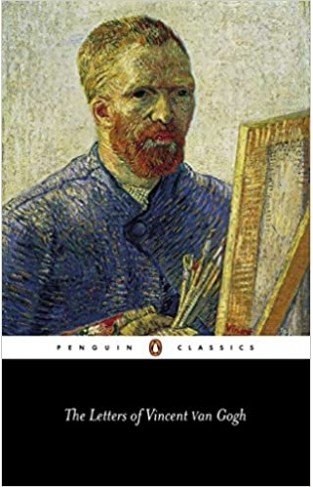
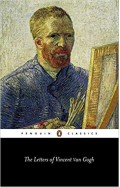
-120x187.jpg?q6)





-120x187.jpg?q6)
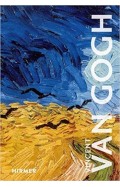
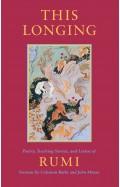






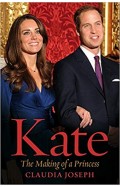


![The Perfect Gentleman: A Muslim Boy Meets the West - [HB]](https://www.libertybooks.com/image/cache/catalog/the-perfect-gentleman-a-muslim-boy-meets-the-west-[hb]-9781455508495-120x187.jpg?q6)
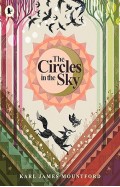
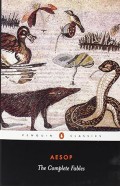
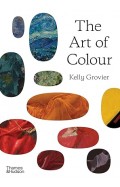

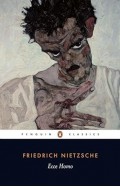

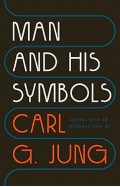

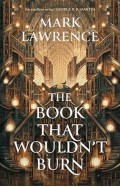



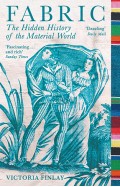
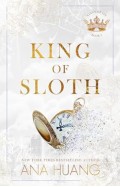
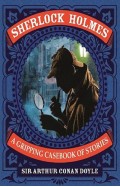
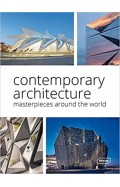
-120x187.jpg?q6)





